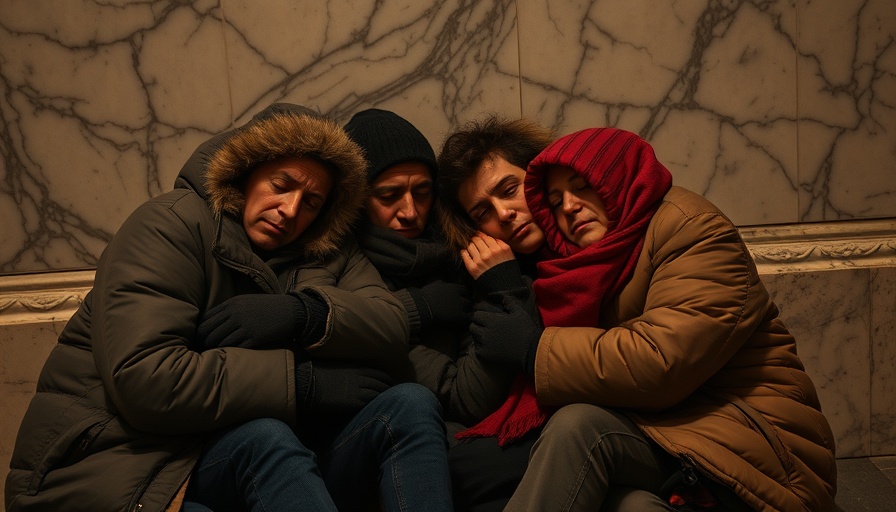
The Nightmares of War: Sleep Deprivation in Ukraine
As Ukraine persists in its struggle against Russia's invasion, an unseen crisis is silently afflicting its population—sleep deprivation. This crisis affects countless lives daily, exacerbating the psychological toll of living amidst drone strikes and missile threats.
Why Are Ukrainians Losing Sleep?
Psychologists and health experts have identified that nearly nightly drone attacks contribute significantly to the lack of rest experienced by many Ukrainians. According to recent findings, the sound of drones buzzing overhead creates a heightened state of anxiety that prevents many from slipping into a restful sleep. Sofia Tsarenko, a resident of the war-torn city of Dnipro, epitomizes this struggle. Originally using wine to cope with her anxiety, she later resorted to sleeping pills when this remedy failed to provide comfort.
The Psychological Fallout: More Than Just Sleep
Insomnia and sleep deprivation are very real health threats, leading to what some experts term "sleep debt." Insufficient sleep can trigger symptoms of anxiety, irritability, and depression, creating a vicious cycle. The impact of this mental strain is evident as experts reported a rise in cases of anxiety disorders among civilians who live under the imminent threat of violence.
A Nationwide Crisis: Ukraine's Growing Sleep Problems
The repercussions of chronic sleep deprivation extend beyond individual suffering; they threaten overall societal well-being. As the conflict drags on, the collective mental health of the population deteriorates. The constant fear stemming from drone attacks disrupts not only sleep but also day-to-day life, productivity levels, and social interactions. Many are left feeling disconnected and depressed as their precarious mental state worsens.
Global Perspectives: How Other Nations Handle Sleep Crises
Ukraine is not alone in its battle against sleep deprivation amid conflict and crisis. Other nations facing similar turmoil, such as those experiencing heightened violence or natural disasters, have also reported spikes in sleep-related issues. For instance, regions affected by the Syrian civil war experienced strikingly similar patterns of insomnia among their populations, illustrating a universal truth: war significantly damages mental health.
The Path Forward: Strategies for Recovery
To combat this sleep crisis, experts recommend multiple strategies. Community initiatives aimed at promoting mental health awareness can empower those affected to seek help. Psychotherapy, along with medications like antidepressants, has been helpful for many as they grapple with their anxieties. Furthermore, establishing support groups can foster a sense of community resilience, enabling individuals to share coping strategies.
Taking Action: What You Can Do
If you or someone you know is struggling with sleep issues stemming from anxiety or trauma, seeking professional help is a crucial first step. Mental health professionals can provide tailored strategies and therapies designed to alleviate symptoms. Basic self-care practices—like maintaining a routine sleep schedule, practicing mindfulness, and fostering a calming nighttime environment—can also be beneficial.
Conclusion: The Importance of Awareness
As the war in Ukraine continues, understanding and addressing the sleep deprivation crisis is imperative. Communities need to become aware of the mental health ramifications that arise from prolonged conflict. By fostering open conversations and promoting resources for support, there’s potential to heal the psychological injuries inflicted by war—one sleepless night at a time.
 Add Row
Add Row  Add
Add 




 Add Row
Add Row  Add
Add 

Write A Comment